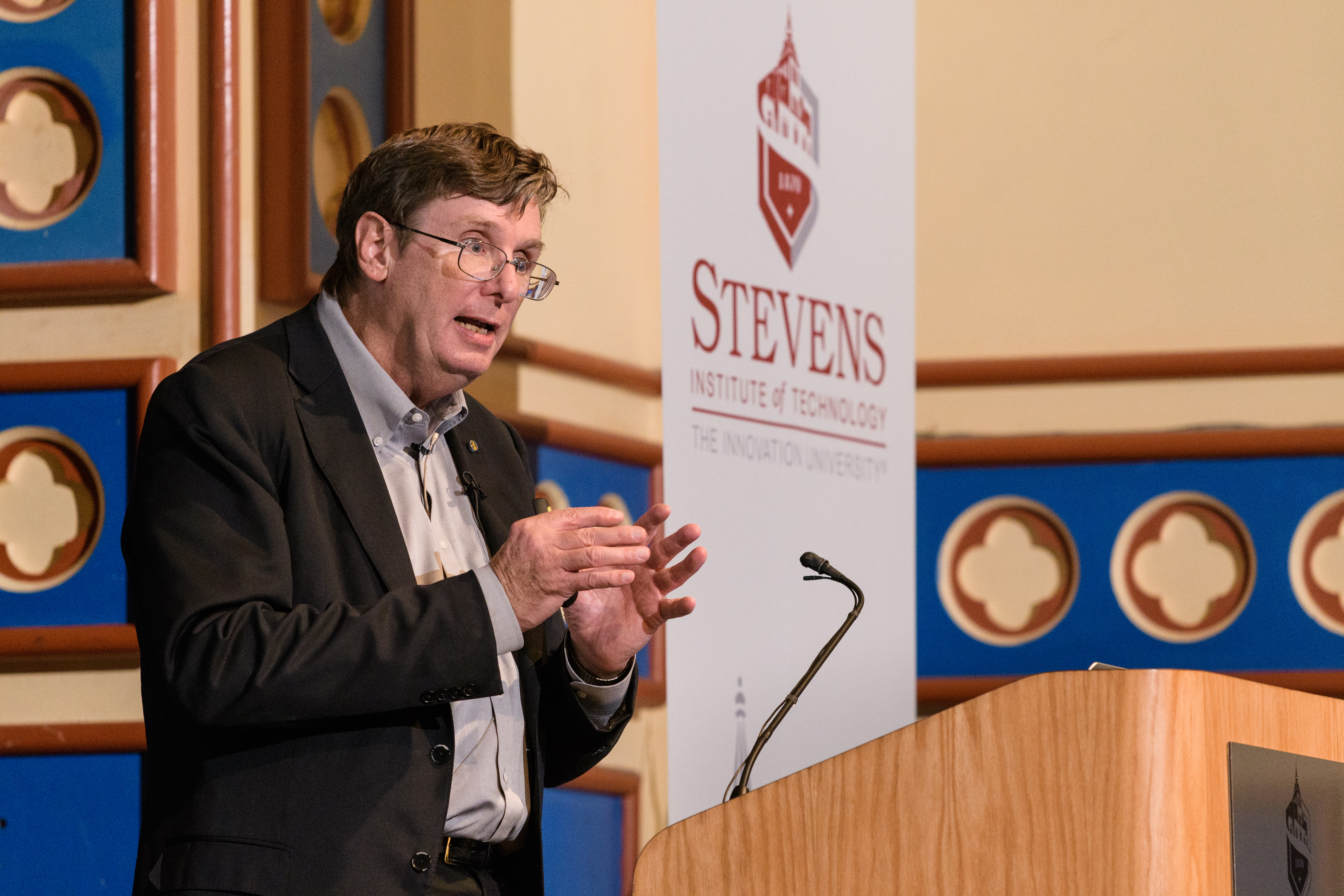Stevens Institute of Technology President Nariman Farvardin welcomed Dr. Curtis Carlson to serve as the next lecturer in the President’s Distinguished Lecture Series this past Wednesday.
Students, faculty and members of the Stevens and larger Hoboken community gathered in DeBaun Auditorium where they were welcomed first by Dr. Farvardin, who noted that Dr. Carlson joins a host of noteworthy lecturers including General Michael V Hayden, former director of the Central Intelligence Agency and National Security Agency, Sharmin Mossavar-Rahmani, Chief Investment Officer of Private Wealth Management Group at Goldman Sachs, and Dr. John Holdren, Assistant to President Obama for Science and Technology. President Farvardin noted that after hearing Dr. Carlson lecture over 4 years ago, he knew he was going to have him visit Stevens in the future.
Dr. Carlson stepped onto the stage and presented the audience with the topic of focus: innovation and education. As the former President and CEO of SRI International, a non-profit research and development company that works with government agencies, businesses, start-ups and nonprofit foundations in the areas of research and development, technology solutions and consulting, Dr. Carlson stressed the critical role that innovation plays, which he defined as the “delivery of new, sustainable value to society.”
Innovation is commonly mistaken to represent creativity or invention, so Dr. Carlson offered the analogy of the ketchup bottle to make the distinction. Ketchup bottles, in their rudimentary forms, are difficult at the end of their lives as most of the ketchup gets stuck at the bottom, requiring a tremendous shaking, slapping effort to remove the remains. However, the innovation of the “inverted” ketchup bottle solved the problem. “Now that we have adapted to it, we expect it,” noted Dr. Carlson. “That is innovation.”
Dr. Carlson argued that the idea of failing fast to succeed early is a myth. “The goal is to learn fast to succeed early,” said Carlson, noting the importance of certain “learning amplifiers,” including real time feedback, focus on big ideas, a need for mentors, and real-time assessment. Carlson went on to challenge the traditional university lecture style, which violate many of these learning amplifiers. He presented one of SRI’s solutions to the failing education system called Cornerstone Math, which has been employed and utilized by over 100,000 children in Florida school systems. Cornerstone Math centralizes on the “big ideas” of algebra (namely slope, equations, similarity, et cetera) which according to Dr. Carlson, many students “get stuck.” The technology-based learning activities have provided what Carlson calls “tremendous” results and “embody innovation values.”
Carlson went on to name several schools that are channeling “innovation values,” such as the Aalto School in Finland, the d.School at Stanford University, and the Girls Middle School in Palo Alto, California. What does each school share? According to Carlson, each school emphasizes the importance of innovative learning, project-based curriculum, and the mentality that being the best the goal. The Girls Middle School, for example, challenges young girls to learn how to run a business, think about innovation, and ultimately plan, pitch, design and sell a product.
Towards the end of his presentation, Carlson stressed one central point: students need value creativity through project-based learning, which he believes Stevens has and will continue to promote in the following years to come. President Farvardin moderated a short Q&A session before thanking Dr. Carlson for flying in from California with a plaque on behalf of Stevens.
Following the presentation, the audience was welcomed to join Dr. Carlson, President Farvardin and other distinguished guests of the Stevens community to Babbio Atrium for a reception.
The President Distinguished Lecture Series, started by President Farvardin in 2012, exists to invite accomplished leaders to help foster discussion and debate in the areas of technology, science, and public policy .

Be First to Comment